Related Research Articles
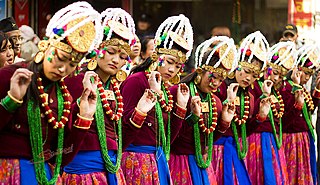
Gurung or Tamu are an ethnic group indigenous to the hills and mountains of Gandaki Province of Nepal. Gurung people predominantly live around the Annapurna region in Manang, Mustang, Dolpo, Kaski, Lamjung, Gorkha, Parbat,Tanahun and Syangja districts of Nepal. They are one of the main Gurkha tribes.
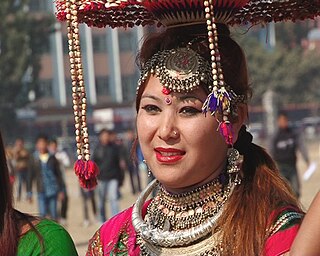
The Tharu people are an ethnic group indigenous to the Terai in southern Nepal and northern India. They speak Tharu languages. They are recognized as an official nationality by the Government of Nepal. In the Indian Terai, they live foremost in Uttarakhand, Uttar Pradesh and Bihar. The Government of India recognizes the Tharu people as a scheduled Indian tribe.

Pokhara is a metropolitan city in central Nepal, which serves as the capital of Gandaki Province and tourism capital of Nepal. It is the second most populous city of Nepal after Kathmandu, with 599,504 inhabitants living in 120,594 households in 2021. It is the country's largest metropolitan city in terms of area. The city also serves as the headquarters of Kaski District. Pokhara is located 200 kilometres west of the capital, Kathmandu. The city is on the shore of Phewa Lake, and sits at an elevation of approximately 822 m. The Annapurna Range, with three out of the ten highest peaks in the world—Dhaulagiri, Annapurna I and Manaslu—is within 15–35 mi (24–56 km) of the valley. The current mayor of Pokhara is Dhana Raj Acharya from CPN.

The culture of Nepal encompasses the various cultures belonging to the 125 distinct ethnic groups present in Nepal. The culture of Nepal is expressed through music and dance; art and craft; folklore; languages and literature; philosophy and religion; festivals and celebration; foods and drinks.

Gurung, also known as Tamu Kyi or Tamu Bhāṣā, is a Sino-Tibetan language spoken by the Gurung people of Nepal. The total number of all Gurung speakers in Nepal was 227,918 in 1991 and 325,622 in 2011.
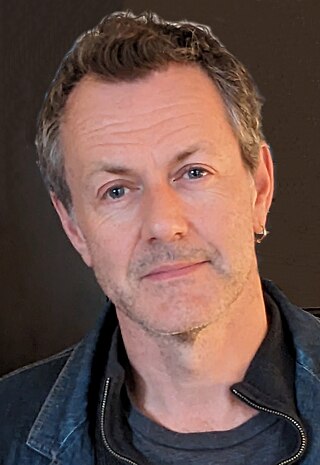
Mark Turin is a British anthropologist, linguist and occasional radio broadcaster who specializes in the Himalayas and the Pacific Northwest. From 2014–2018, he served as Chair of the First Nations and Endangered Languages Program and Acting Co-Director of the Institute for Critical Indigenous Studies at the University of British Columbia in Vancouver. He is an Associate Professor at the University of British Columbia, cross-appointed between the Department of Anthropology and the Institute for Critical Indigenous Studies. He currently serves as the Interim Editor of the journal Pacific Affairs.

Lesbian, gay, bisexual, and transgender (LGBT) rights in Nepal have evolved significantly during the 21st century, though barriers to full equality still exist within the nation. In 2007, Nepal repealed the laws against gay sex and introduced several laws which explicitly protected "gender and sexual minorities". The Nepalese Constitution now recognizes LGBT rights as fundamental rights. On 28 June 2023, a single judge bench of Justice Til Prasad Shrestha issued a historic interim order directing the government to make necessary arrangements to "temporarily register" the marriages of "non-traditional couples and sexual minorities". The full bench of the Supreme Court has yet to deliver a final verdict. The first queer marriage of a trans woman and a cisgender man occurred in November 2023. Nepal will be the first least developed country and the first in South Asia to legalize same-sex marriage, and the second in Asia after Taiwan.

Kagbeni is a 2008 Nepali movie, loosely based on W. W. Jacobs's 1902 horror short story The Monkey's Paw. Kagbeni is the directorial debut of Bhusan Dahal. The name of the movie is taken from a tourist place Kagbeni in the valley of the Kali Gandaki, which is a two-hour trek from Muktinath. Kagbeni is considered to be a movie which changed the way people look at Nepali cinema, because it is seen as the first successful non-commercial movie in Nepal which was able to leave its mark in the film industry. by Nepali critics now often describe non-commercial movies as 'post- Kagbeni era films'. Kagbeni was one of the few Nepali films during its time to manifest cinematography as one of the important elements in cinema.
The Supreme Court of Nepal has ruled in favor of same-sex marriage since 2008. On 28 June 2023, Supreme Court Justice Til Prasad Shrestha directed the government to establish a "separate register" for "sexual minorities and non-traditional couples" and to "temporarily register them". However, the Supreme Court has yet to deliver a final verdict. A first hearing was expected to begin on 14 March 2024.

Sushma Joshi is a Nepali writer, filmmaker based in Kathmandu, Nepal. Her fiction and non-fiction deal with Nepal's civil conflict, as well as stories of globalization, migration and diaspora.
Throughout the year, different organizations host pride parades in Nepal. Blue Diamond Society, an LGBT rights organization, in 2010 organized Gai Jatra Gay March, with most participants on masks to prevent being identified by suspected homophobic people. In recent years, many pride parades in different times of the years have been organized. Due to criticism of Blue Diamond Society for organizing pride parade in Gaijatra festival many organizations deviated into new rallies. All the parades by Blue Diamond Society have coincided with the Gaijatra festival. The parades end with a candle-light vigil in memories of those who died in the past year, promoting equality for all.

Ubhauli (उभौली) is festival of the Kirat communities of Sunuwar, Rai, Limbu and Yakkha of Nepal, India and around the world by Kirati people celebrated every year marking the migration phase upwards towards the hilly regions when the summer season arrives. The migration from hills downwards to areas of lower altitude is called Udhauli (downwards), which is also an annual festival of these communities. Sakela is the dance performed during the festival. On this Ubhauli festival day, the Kirat people pray to mother nature for healthy crops and protection from natural calamities in that year.
Dr. Harka Bahadur Gurung (1939–2006) was a Nepali geographer, author, and politician, known for his conservation work.
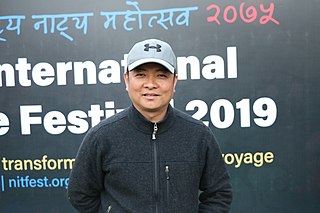
Dayahang Rai is a Nepalese actor, director, and playwright. Dayahang is known for his uniqueness in Nepali cinema. He is one of the most popular and acclaimed actors of Nepal. He has starred in over 40 films and is one of the leading contemporary actors of Nepal. He has received various accolades throughout his acting career. Dayahang is a veteran theatrical actor who made the jump to Nepali cinemas.
The National Film Awards is the most prominent and prestigious award of Nepali cinema. The first National Film Award was held in 2005, in the presence of His Majesty's King Gyanendra Bir Bikram Shah. The event is held at the residence of the president of Nepal and the president gives the awards to the winners in various categories. It is yearly organised by Film Development Board, Nepal.
Ram Babu Gurung is a Nepalese writer and director known for his work in Nepali cinema. His debut as a director was critically acclaimed 2013 film Kabaddi.
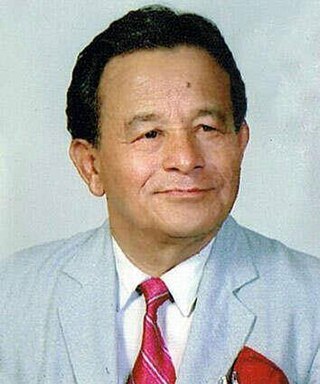
Gopal Gurung was a politician, author, journalist, teacher and vocal advocate of the human rights for the indigenous people of Nepal. Gurung was the editor-in-chief of New Light and Thunderbolt weekly newspapers for many years. He was a former member of the Central Committee of the Nepal Journalists Association, former Secretary General of the World Nepalese Association and Chairman of the All India Press Council for Nepal, as well as a consultant and coordinator for the Press Foundation of Asia (PFA), Manila, Philippines.

Nepal Literature Festival is an annual international literary festival which takes place in Pokhara, Nepal. It was founded in 2011 by Bookworm Foundation, a not-for-profit organization.
Lomba (The Leadership) is a Nepali feature film in Magar language written and directed by Anil Budha Magar. The film depicts the journey about the transportation of a herd of sheep from one place to another in the Himalayan region. Lead actors in Lomba include Janak Budhamagar, Maitya Gharti Magar, Dhana Rupi Budhamagar, Tira Budhamagar, Shambu Pun Magar, Ram Bini Budhamagar, and Surat Pun Magar.
References
What supports what
Sources
- Córdova, Amalia (2019). "Following the Path of the Serpent: Indigenous Film Festivals in Abya Yala". In Gilbert, Helen; Phillipson, J. D.; Raheja, Michelle H. (eds.). In the Balance: Indigeneity, Performance, Globalization. Liverpool University Press. pp. 163–181. ISBN 9781786940346.
- Gaenszle, Martin (2017). "'Numagung': Images of Limbu Culture in Ethnic Cinema". In Hutt, Michael; Onta, Pratyoush (eds.). Political Change and Public Culture in Post-1990 Nepal. Cambridge University Press. ISBN 9781316996287.
- "Indigenous film fest to start today". The Himalayan Times . 2007-06-21.
- "Indigenous film fest on". The Himalayan Times . 2008-06-06.
- "Going the indigenous way". The Himalayan Times . 2009-05-11.